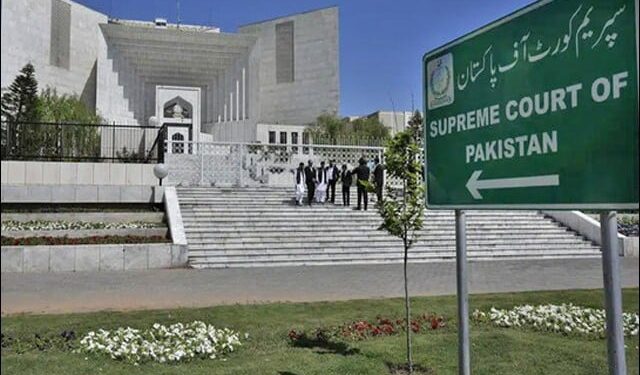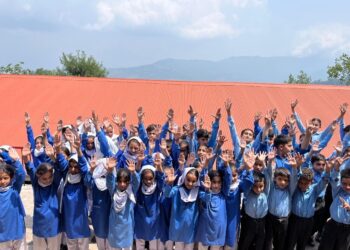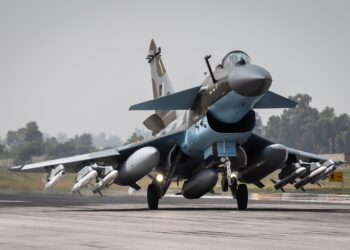Islamabad – In a significant development that may have far-reaching implications for the country’s legal and constitutional framework, the Supreme Court of Pakistan reaffirmed the foundational principles of due process during the ongoing hearings into the legality of trying civilians in military courts. Justice Jamal Khan Mandokhel, part of a seven-member constitutional bench, stated unequivocally that no arrest can be made without the registration of a First Information Report (FIR), and no one can be detained without an order from a magistrate.
Seven-Member Bench Examines Intra-Court Appeals
The hearing, led by Justice Aminuddin Khan, involved a seven-member bench deliberating on the intra-court appeals challenging the trial of civilians in military courts, especially in the wake of the controversial arrests and military detentions that followed the May 9 unrest.
Judicial Commentary and Legal Nuances
Justice Jamal Mandokhel’s remarks brought the principle of due process back to the forefront. He emphasized that even in cases involving national security, legal protections afforded by the Constitution cannot be disregarded.
“You cannot arrest someone without lodging an FIR, and detention without a magistrate’s order is equally unlawful,” Justice Mandokhel declared.
Justice Muhammad Ali Mazhar pointed out that even members of paramilitary forces like Rangers and Frontier Corps (FC), who may face dismissal from service, have access to legal recourse through the Service Tribunal.
Justice Mandokhel further drew attention to how procedures function within the police, stating that appeals within the police force are also dealt with through defined legal channels, just like in neighboring countries such as India, where independent forums exist.
Defense Ministry’s Representation and Legal Arguments
Renowned lawyer Khawaja Haris, representing the Ministry of Defense, was asked by Justice Mandokhel to conclude his arguments within 20 minutes. Haris, who has been articulating the military’s position on the legality and necessity of trying civilians under military law, indicated he would attempt to wrap up his submissions the same day.
Additional Attorney General Aamir Rehman added that if Khawaja Haris finishes presenting his case, the Attorney General of Pakistan would continue with arguments the following day.
Implications of May 9 Cases
Justice Muhammad Ali Mazhar highlighted that the May 9 accused were charged under the Official Secrets Act and transferred to military custody through Anti-Terrorism Courts (ATCs). He noted that the army did not directly register any FIRs in these cases, leaving room for legal debate on whether the handover of civilians to military jurisdiction was constitutionally valid.
The military trials were ordered in connection with the attacks on military installations and sensitive sites during the May 9 protests, allegedly instigated by political unrest. Several civilians were arrested, with reports claiming that they were subsequently tried or set to be tried in military courts, raising alarms among legal and human rights communities.
Reference to Landmark Cases: FB Ali Case
Justice Mandokhel also reminded the courtroom that the case under hearing could shape the future legal landscape of Pakistan. He referenced the historical FB Ali case, which continues to be cited in legal debates decades later, signifying the potential long-term impact of the court’s ruling.
Justice Hassan Azhar Rizvi noted the irony that while earlier references to the FB Ali case were discouraged in the courtroom, it has now become a recurring element in legal discussions.
Light-Hearted Banter Amid Serious Discourse
Despite the seriousness of the proceedings, the courtroom witnessed a moment of levity. When Khawaja Haris hinted that the volume of judicial questions was delaying the conclusion of his arguments, Justice Musarrat Hilali interjected humorously, saying, “Put the responsibility on me, I won’t let anyone ask questions.”
Justice Jamal Mandokhel then quipped, “I assure you that I won’t ask any questions now,” easing the courtroom atmosphere.
Next Steps in the Legal Process
The bench announced that the hearing would resume the next day at 11:30 AM, where the Attorney General would begin his arguments. Given the constitutional significance of the case, the bench is expected to delve deeper into the legality of civilian trials in military courts, the necessity of due process, and the overarching human rights implications.
Background: Military Courts Controversy
The debate over military courts in Pakistan is not new. These courts have intermittently been used for trying civilians, particularly in terrorism-related cases, under special constitutional amendments or emergency provisions. The latest controversy stems from the aftermath of the May 9 riots when multiple civilians were accused of attacking military properties. Human rights groups and opposition parties criticized these measures as an overreach and a threat to civilian supremacy and fundamental rights.
Key Legal Questions Being Considered
The Supreme Court’s bench is examining several key issues:
- Can civilians be constitutionally tried under military laws?
- What constitutes sufficient grounds to bypass the regular judicial system?
- Are the rights of the accused adequately protected under military jurisdiction?
- Does the Constitution allow the military to hold custody without FIRs and magistrate orders?
Wider Implications for Civil-Military Relations
This case is being closely watched not only by legal experts but also by political analysts and civil society members. The court’s decision could redefine boundaries between military and civilian institutions in Pakistan, potentially restoring confidence in democratic norms and judicial oversight.
Conclusion: Upholding the Rule of Law
The Supreme Court’s reaffirmation that arrests cannot be made without FIRs and detentions require magistrate approval reiterates the importance of upholding the rule of law. As the case progresses, the nation awaits a landmark judgment that may well influence civil liberties and governance for decades to come.

























